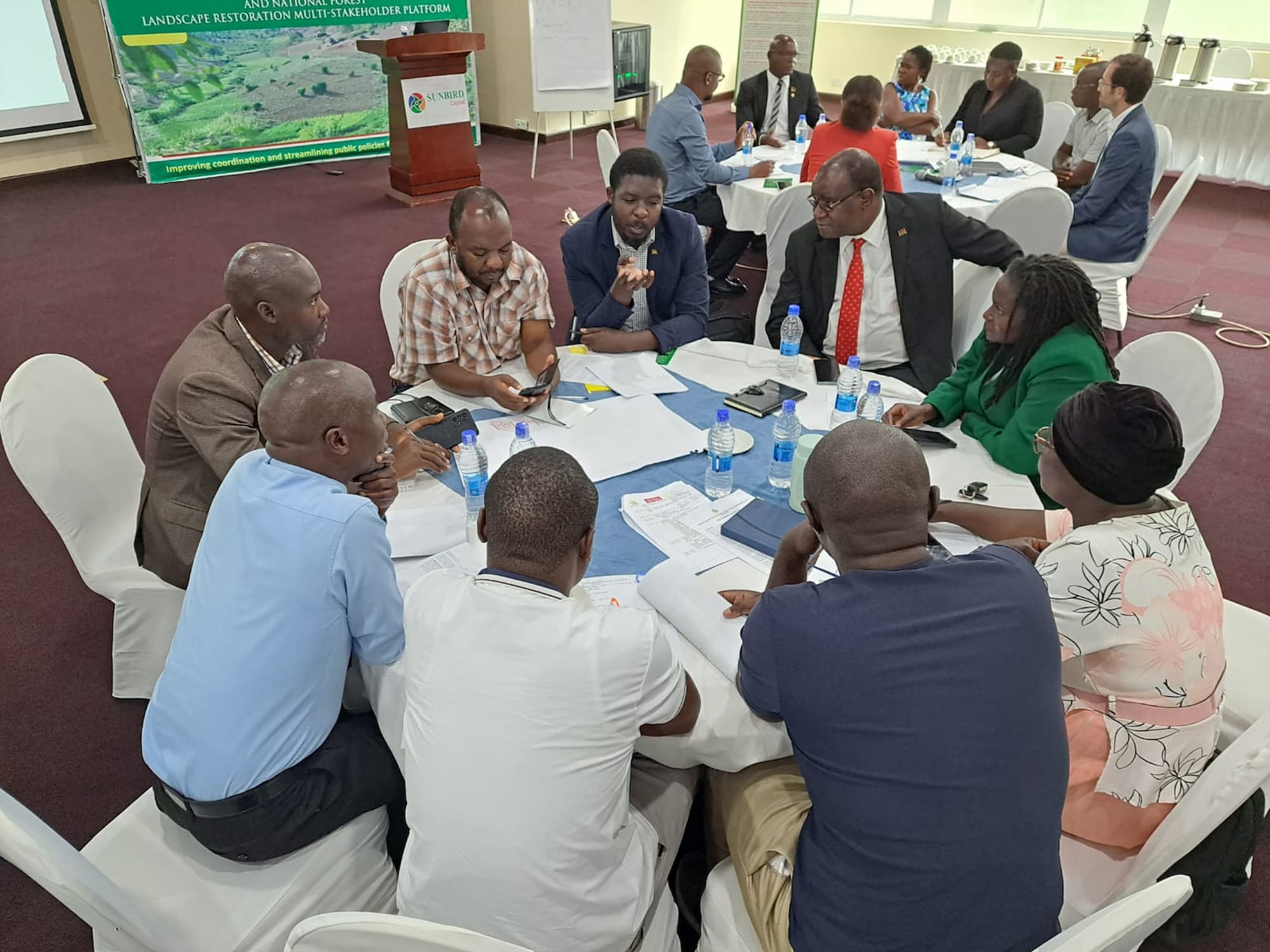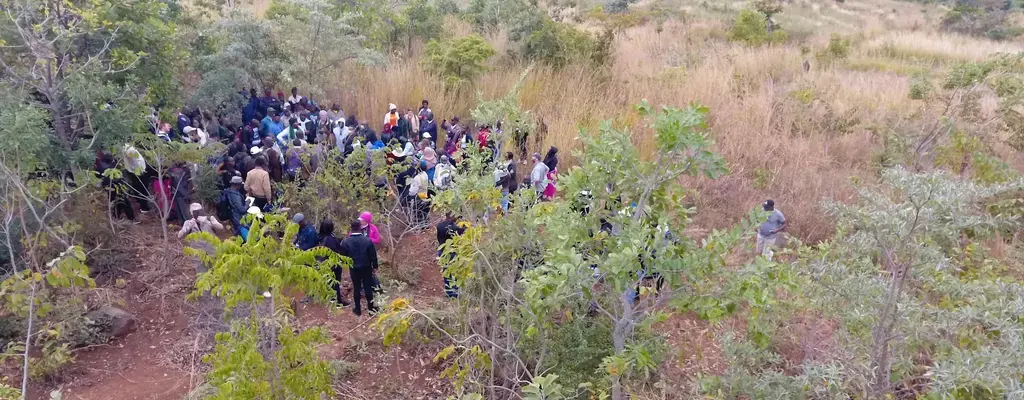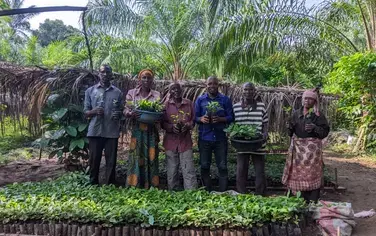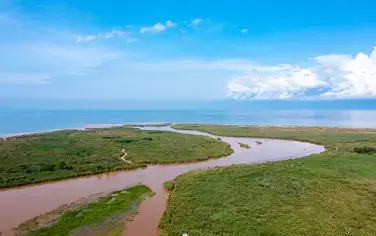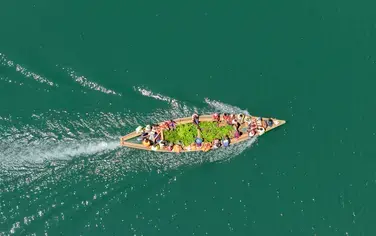By Krista Karch, Bernadette Arakwiye, Meseret Shiferaw, Assumpta Uzamukunda, Gilbert Muvunankiko, Kalpana Giri and Spencer Ng’oma
There’s little debate that healthy land is valuable land, but restoring degraded land is complicated and requires a well-orchestrated approach. The first step is to recognize that land restoration isn’t a goal in and of itself, but a means to multiple ends. Multiple stakeholders at national and local levels — including women, smallholder farmers, Indigenous peoples and others — have a hand in improving soil quality, protecting forests, natural resources and local livelihoods, and sustaining national and local economies. Therefore, these actors should come together to create or pursue shared strategies that meet desired benefits.
This collaborative approach can take the form of a multi-stakeholder platform. This isn’t a new concept in integrated landscape initiatives, but it’s gaining traction across the African Forest Landscape Restoration Initiative (AFR100). AFR100 is a partnership of 34 member countries in Africa, all of which work together to restore 100 million hectares of land around Africa by 2030. AFR100 contributes to the Bonn Challenge, a global restoration movement.
So far, multi-stakeholder platforms on landscape restoration exist in 12 of the 34 AFR100 member countries, including Cameroon, Chad, Democratic Republic of Congo, Niger, Senegal, Nigeria, Sudan, Malawi, Togo, Ethiopia, Tanzania and Rwanda. These platforms comprise multiple sectors and stakeholders. Yet each country tailors its model. Some countries have multiple thematic platforms that are nested or operating in parallel and vary in terms of legitimacy. In Togo and Niger, for example, multi-stakeholder platforms were approved through administrative orders or decrees while in other countries multi-stakeholder platforms are operated as informal entities.
In early 2023, WRI, in collaboration with the AFR100 Secretariat separately convened members of multi-stakeholder platforms in Rwanda and Malawi to take stock of the platforms. Overall, platforms members in both countries see concrete benefits and want to find ways to make the platforms even more impactful.
Read highlights of the multi-stakeholder platforms below:
Rwanda: Creating an Umbrella Platform
A cross-sectoral task force was created in 2015 to spearhead Rwanda’s response to the Bonn Challenge. This task force coordinates knowledge exchange and provides technical inputs to inform relevant policies and strategies, including Rwanda’s Vision 2050 and the National Strategy for Transformation, as well as for Sustainable Development Goals. The platform also coordinates the monitoring for cross-sectoral projects and reviews expansion potential.
In addition, an Agroforestry Task Force was formed in 2021 to coordinate and harmonize agroforestry initiatives, monitor and evaluate the impacts of agroforestry implementation, develop technical guidelines and advocate for resources and partnerships. Also, the Erosion Control Task Force was created in 2022 by a ministerial order to implement the National Programme for Soil Erosion Control. It coordinates all erosion control interventions in Rwanda, from the national, province, district, sector and cell levels.
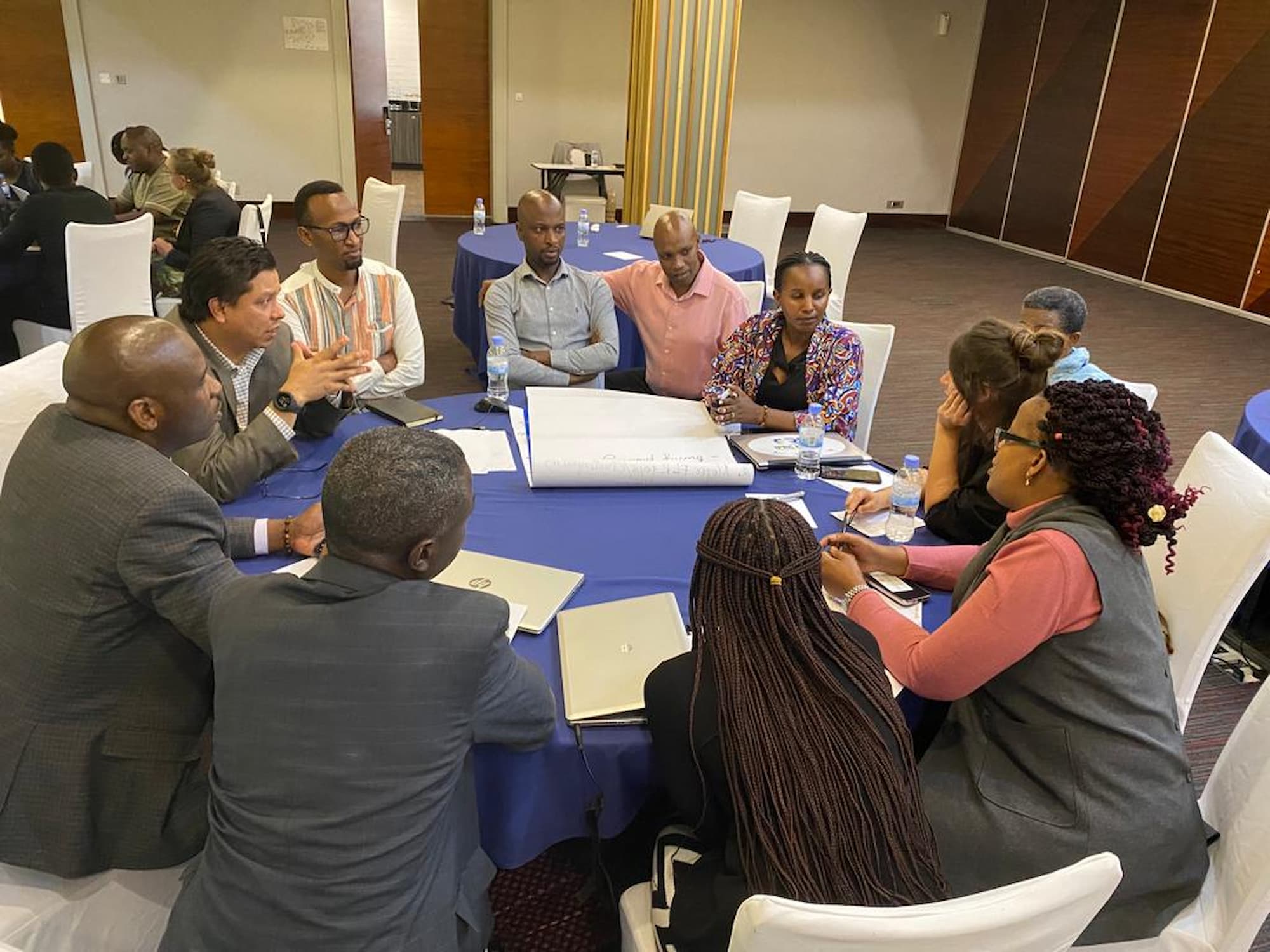
The three multi-stakeholder platforms have been successful on some fronts, but participants at its first meeting noted that donor-funded restoration projects are often time-bound and restricted in scope, and maintenance of projects is often constrained by budgets. Other challenges include lack of formal mandate and inadequate representation of groups including youth and women, and limited opportunities to interact with platforms in other AFR100 partner countries.
To solve these challenges, the cross-sectoral task force was voted to serve as an umbrella platform for the other two groups. Leveraging expertise and guidance from all platforms during planning, mobilizing resources, implementing and assessing progress of restoration projects proved to be an important strategy to ensure the operationalization and sustainability of multi-stakeholder platform in Rwanda.
Malawi: Maximizing Efficiency
In Malawi, the National Restoration Platform was formed in 2021 to mobilize resources, plan and implement actions and monitor progress. Its membership includes government departments, civil society organizations, private sector and community-based organizations, with its secretariat housed in the Ministry of Natural Resources and Climate Change.
The platform members recently reviewed the terms of reference to maximize efficiency and increase membership. During the multi-stakeholder platform workshop for Malawi, members identified inconsistent policy guidelines, inadequate resources and lack of effective coordination as the main challenges to landscape restoration. They recommended resource mobilization and regular stakeholder meetings to review the terms of reference as immediate tasks. Going forward, the platform is also developing medium- and long-term plans of action to guide its operations as well as resourcing interventions in Malawi.
The Future of Multi-stakeholder Platforms
Restoration interventions across AFR100 countries will differ depending on landscape contexts. Multi-stakeholder platforms can play a key role in countries’ processes to translate national restoration pledges and associated goals into local contexts, and therefore accelerate restoration actions on the ground. An inclusive, well-coordinated and resourced multi-stakeholder platform could create a conducive space for effective dialogues around conflicting goals and support collaboration on key priorities.
To ensure that platforms are fit for purpose, countries should do the following:
